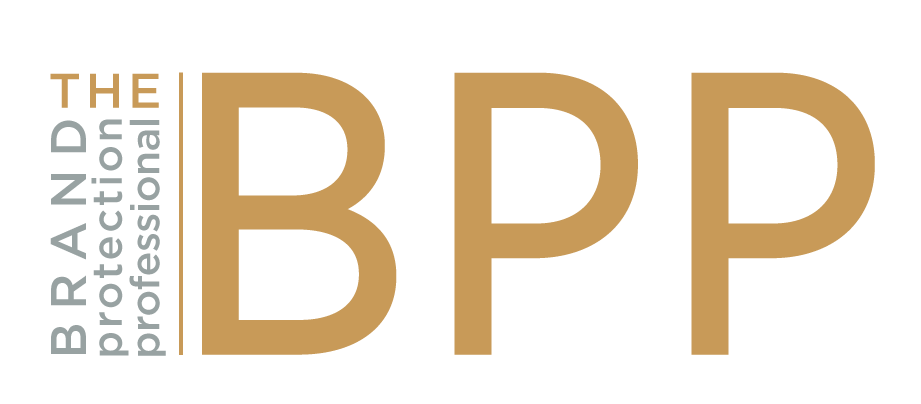Kasie Brill
Vice President of Brand Protection & Strategic Initiatives, Global Innovation Policy Center (GIPC)
Executive Director, Global Brand Council, U.S. Chamber of Commerce
According to the Organisation for Economic Co-operation and Development (OCED), global trade in counterfeit products exceeds half a trillion dollars each year(OECD, 2019). That is simply unacceptable. Like so many other aspects of business, the sale of counterfeits has increasingly moved into the online environment. The Global Innovation Policy Center of the U.S. Chamber of Commerce, along with its Global Brand Council, is working to combat these dangerous fakes.
Sales of counterfeits online is a multi-faceted problem. We have seen criminals deceive consumers through veils of legitimacy, whether those are completely fake websites designed to look like those of the legitimate brand owner or fake listings that are difficult to distinguish from legitimate products and legitimate distributors. Indeed, nearly 65% of American consumers lack confidence they can discern between fake and legitimate online offerings.
Of course, it’s not only consumers who have difficulty with online counterfeiting. Enforcement is complicated by many layers of challenges: the anonymity of the counterfeiting source, the likelihood that they operate outside the United States and in many cases in jurisdictions with ineffective enforcement systems, and varying degrees of cooperation from intermediaries including domain name registries and registrars.
The harms to consumers from dangerous fakes have long been clear. The COVID-19 pandemic has brought such harms into even clearer focus. From counterfeit masks and other personal protective equipment, to household and consumer care products, to the clear and present danger of counterfeit vaccines, the stakes have never been higher. The Department of Homeland Security’s Operation Stolen Promise has targeted COVID-related fakes and resulted in thousands of seizures of fake products, hundreds of arrests, and seizure of millions of dollars of illicit and fraudulent proceeds. We commend the Department of Homeland Security’s leadership and meaningful actions taken to identify, interdict and seize dangerous products intended for our front line workers. And, yet, this is likely only the tip of the iceberg.
There are three sets of proposals introduced in Congress aimed specifically at the challenges of counterfeit products sold online: the Stopping All Nefarious Toys in America (SANTA) Act; the Integrity, Notification, and Fairness in Online Retail Marketplaces for Consumers (INFORM Consumers) Act; and the Stopping Harmful Offers on Platforms by Screening Against Fakes in E-commerce (SHOP SAFE) Act.
The SANTA Act and the INFORM Consumers Act are both focused on requiring procedures up front to identify and weed out bad actors. Online sales platforms would be required to obtain identifying information about vendors who seek to sell their wares on those platforms, including true names proven with government identification, verified bank accounts, and similar identifying information. Enforcement of these requirements would be handled by the Federal Trade Commission.
With the INFORM Consumers Act’s reintroduction in the 117th Congress, there has been additional focused attention on the bill from Congress as well as from the business community. See here to keep tabs on any developments on the bill.
The SHOP SAFE Act is focused on establishing U.S. jurisdiction against third-party sellers, rules for when platforms must remove sellers from their network, and introduces the concept of secondary liability against platforms that do not take the proper precautions. Enforcement would be through the courts. On May 20, 2021, House Judiciary Committee Chairman Jerrold Nadler (D-NY), Chairman Henry C. “Hank” Johnson, Jr. (D-GA), Ranking Member Darrell Issa (R-CA), and Representative Ben Cline (R-VA) reintroduced the SHOP SAFE Act. On Thursday, May 27th, the House Judiciary Subcommittee on Courts, Intellectual Property, and the Internet held a hearing on the SHOP SAFE Act. See here to keep tabs on any developments on the bill. The Senate introduced their own version of the legislation on May 26, 2021 (see SHOP SAFE Act).
With consumers facing critical safety concerns and a variety of stakeholders needed to identify and deter criminal counterfeiters, a range of tools is needed. It may be that specific aspects of each of these proposals will be appropriate, and perhaps some other approaches including a range of industry best practices and voluntary actions will be needed as well.
The Global IP Center and the Global Brand Council appreciate that Congress is providing needed attention to the enforcement of trademarks and the harms of counterfeits in the online environment, and will continue to work to ensure that the right tools are provided to protect brand owners, consumers, and promote safe and secure online commerce.
THE BRAND PROTECTION PROFESSIONAL | JUNE 2021 | VOLUME 6 NUMBER 2
COPYRIGHT 2021 MICHIGAN STATE UNIVERSITY BOARD OF TRUSTEES

